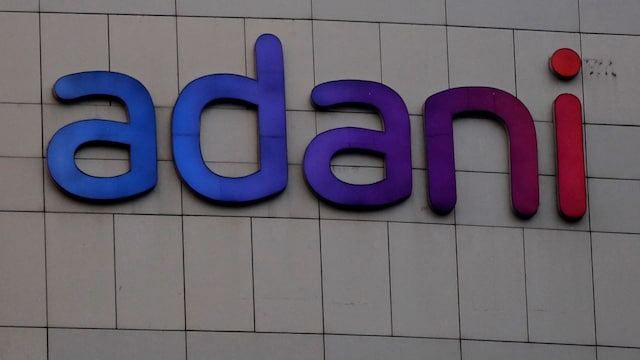AI Therapy: Surveillance In A Police State? A Critical Examination

Table of Contents
Data Privacy and Security in AI Therapy
AI therapy relies heavily on the collection and analysis of highly sensitive personal data, including intimate details about an individual's mental state, thoughts, and behaviors. This reliance on extensive data collection raises serious questions about data privacy and security. Breaches, whether accidental or malicious, could have devastating consequences for individuals, leading to identity theft, reputational damage, and further exacerbation of mental health issues. The potential for misuse by third parties, including insurance companies or even government agencies, is a significant concern.
- Lack of robust data protection measures: Many current AI therapy platforms lack sufficient encryption and security protocols to protect sensitive patient data from unauthorized access.
- Potential for data misuse by third parties: Data breaches could expose confidential information to hackers, marketers, or other entities, leading to its unauthorized use or sale.
- Concerns about compliance with data protection regulations (HIPAA, GDPR): Ensuring compliance with existing data protection regulations like HIPAA in the US and GDPR in Europe is crucial but challenging in the rapidly evolving field of AI therapy.
- Need for transparent data handling policies: Users need clear, understandable information about how their data is collected, stored, used, and protected. Transparency builds trust and accountability.
Algorithmic Bias and Discrimination in AI Therapy
AI algorithms are trained on data, and if that data reflects existing societal biases, the algorithms will inevitably perpetuate and even amplify these biases. This is a significant concern in AI therapy, where biased algorithms could lead to misdiagnosis, inappropriate treatment recommendations, and discriminatory outcomes. Marginalized groups, already facing systemic barriers to mental healthcare, could be disproportionately affected.
- Bias in diagnostic tools: AI systems trained on data predominantly from one demographic may misinterpret or fail to accurately diagnose mental health conditions in individuals from other backgrounds.
- Disparate treatment based on race, gender, or socioeconomic status: Biased algorithms could lead to unequal access to care or different treatment recommendations based on irrelevant factors.
- Lack of diversity in AI development teams: The lack of diversity in the teams designing and developing AI therapy tools contributes to the perpetuation of bias. Diverse teams are crucial for creating equitable and inclusive systems.
- Need for rigorous testing and auditing of AI algorithms for bias: Regular and independent audits are necessary to identify and mitigate bias in AI therapy algorithms.
The Potential for AI Therapy to be Weaponized in a Police State
In authoritarian regimes, the data collected through AI therapy could be easily weaponized for social control and surveillance. Governments could use this information to identify and target individuals deemed "at risk" or "dissenting," suppressing dissent and infringing upon fundamental human rights. This potential for misuse transforms AI therapy from a tool for healing into a potent instrument of oppression.
- Use of AI therapy data for profiling and predictive policing: AI algorithms could be used to identify individuals who might be prone to certain behaviors, allowing for preemptive surveillance and intervention.
- Potential for targeting political opponents or marginalized groups: AI therapy data could be used to identify and suppress individuals deemed threats to the regime.
- Erosion of trust in mental healthcare services: The weaponization of AI therapy could undermine public trust in mental healthcare, discouraging individuals from seeking help.
- Increased risk of self-censorship and chilling effects on free speech: Individuals may be hesitant to express themselves freely for fear that their words will be used against them.
The Role of Government Regulation and Oversight
Mitigating the risks associated with AI therapy requires strong government regulation and oversight. This includes establishing clear ethical guidelines for the development and deployment of AI therapy tools, implementing robust data protection measures, and creating independent oversight bodies to ensure accountability. International cooperation is essential to establish global standards for ethical AI development and deployment. Without proper oversight, the potential for misuse in a police state setting remains a significant concern.
Conclusion
AI therapy holds immense potential to revolutionize mental healthcare, but its unchecked development and deployment pose significant threats to privacy, fairness, and human rights, especially in the context of a police state. The potential for misuse as a surveillance tool is a serious concern that necessitates careful consideration and proactive measures. We must engage in a critical dialogue about the ethical implications of AI therapy and advocate for robust regulations and oversight to prevent its misuse and ensure its responsible development. Let's ensure AI therapy remains a tool for healing, not a weapon of surveillance. Join the conversation and demand accountability in the development and implementation of AI therapy technologies. Let's work together to harness the benefits of AI therapy while safeguarding our fundamental rights and freedoms.

Featured Posts
-
 Goats Support Fuels Paddy Pimbletts Ufc 314 Championship Bid
May 15, 2025
Goats Support Fuels Paddy Pimbletts Ufc 314 Championship Bid
May 15, 2025 -
 Stocks Surge On Bse Sensex Climbs Top Performers Revealed
May 15, 2025
Stocks Surge On Bse Sensex Climbs Top Performers Revealed
May 15, 2025 -
 Frederieke Leeflang Npo Toezichthouder Belooft Snelle Actie
May 15, 2025
Frederieke Leeflang Npo Toezichthouder Belooft Snelle Actie
May 15, 2025 -
 Vont Weekend April 4 6 2025 104 5 The Cat
May 15, 2025
Vont Weekend April 4 6 2025 104 5 The Cat
May 15, 2025 -
 Kibris Sorunu Ve Direkt Ucuslar Tatar In Aciklamalarinin Oenemi
May 15, 2025
Kibris Sorunu Ve Direkt Ucuslar Tatar In Aciklamalarinin Oenemi
May 15, 2025
Latest Posts
-
 Albanese Vs Dutton A Pivotal Election Pitch
May 15, 2025
Albanese Vs Dutton A Pivotal Election Pitch
May 15, 2025 -
 Australias Election A Head To Head Comparison Of Albanese And Duttons Platforms
May 15, 2025
Australias Election A Head To Head Comparison Of Albanese And Duttons Platforms
May 15, 2025 -
 Election 2024 Dissecting The Key Policy Pitches Of Albanese And Dutton
May 15, 2025
Election 2024 Dissecting The Key Policy Pitches Of Albanese And Dutton
May 15, 2025 -
 Albanese And Dutton Contrasting Visions For Australias Future
May 15, 2025
Albanese And Dutton Contrasting Visions For Australias Future
May 15, 2025 -
 103 Pictures A Vont Weekend Review April 4 6 2025
May 15, 2025
103 Pictures A Vont Weekend Review April 4 6 2025
May 15, 2025
